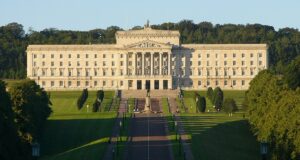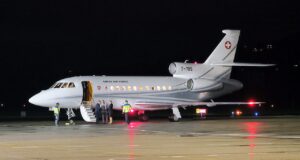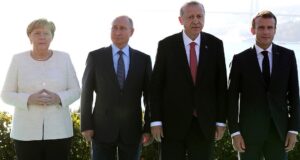On August 8, 1998, Taliban forces, with the help of Pakistani and Arab fighters, captured the city of Mazar-i Sharif in northern Afghanistan. What happened next was described by Human Rights Watch as a “killing frenzy”.
Their main target was the Hazara community, who had fiercely resisted the Taliban’s advances. Tajiks and Uzbeks were persecuted too. Within days, thousands of dead bodies piled up in the streets. Mullah Abdul Manan Niazi, the new governor of the province, had given the people of Mazar-i Sharif a merciless ultimatum: convert to Sunni Islam, leave Afghanistan, or face death.
An old proverb says: “Koho mardumon mo ya” (mountains are our people) — thousands of Hazaras had survived taking refuge in the mountains and remote valleys. The current tragedy of Iraq’s Yazidi and Christian communities is a déjà-vu of what the Hazaras have experienced in Afghanistan.
Abu Bakr Al-Baghdadi’s Islamic State is similar to Mullah Omar’s Islamic Emirates. The former calls himself the Caliph; the latter Amir-ul-Moemineen (commander of the faithful). Both want to create a state based on literal interpretations of the Quran and the Hadith.
We in the West are horrified by IS’s atrocities. We are appalled by IS’s destruction of cultural, religious and historical sites in Iraq and Syria: the Taliban have been there, done it, and continue to do so. They destroyed most of what was left in Kabul’s once rich museum. When they captured the historical city of Bamiyan, they detonated the two giant statues of Buddha. They again massacred the local Hazaras.
The Taliban were the consequence of chaos and bloodshed ensued after the West abandoned Afghanistan following the defeat of the Soviets. We made a fundamental mistake with the decision to let the country rot in its own miseries; a strategic error that is haunting us until the present day.
The Islamic Emirates of Afghanistan, was not so much a threat to the West as an entity. However, they had turned Afghanistan into a failed and rogue state. They had given sanctuary and training facilities to Osama Bin Laden and his fellow Al-Qaeda terrorists. Al-Qaeda used Afghanistan as its home base and it was there where their deadly attacks were planned. After 9/11, the US demanded the handover of Osama Bin Laden and the deportation of his followers. Mullah Omar refused. Had he accepted, the Taliban might still be in power.
Until Al-Qaida hit the twin towers, there was not much interest in the Taliban’s affairs. Only few knew about the motives of the group, let alone the ideology behind it. We only acted when it was already too late and looked away when the Hazaras, the Tajiks and the Uzbeks were massacred.
The Islamic State’s motives are clear. They want to create a universal Islamic Caliphate and have become a cohesive, committed and efficient force. They have successfully recruited thousands from the West – Australians, Germans, Brits and many others. These foreign fighters pose a fundamental threat to our national security and have been described by the intelligence community and terrorism experts as the single greatest danger since the 9/11 attacks. Whilst the Taliban did not have the intentions of attacking the West themselves and focused on committing brutal atrocities at home, Al-Baghdadi’s men can and, if left to their own accord, will attack the West and their interests. This should alarm the policymakers and force them to action.
We have a moral obligation to protect the defenceless and innocent people being persecuted and slaughtered not just because of our liberal-humanitarian values, but because we can. We also have to act against the Islamic State, Al-Baghdadi and his mad men for the sake of our national security. The Taliban barbarism and threats were ignored and we continue to pay blood and treasure as a consequence. The Islamic State is far more dangerous. We must not repeat the mistakes of the past: they have to be confronted, defeated and completely eradicated.
 Human Security Centre Human Rights and International Security Research
Human Security Centre Human Rights and International Security Research



